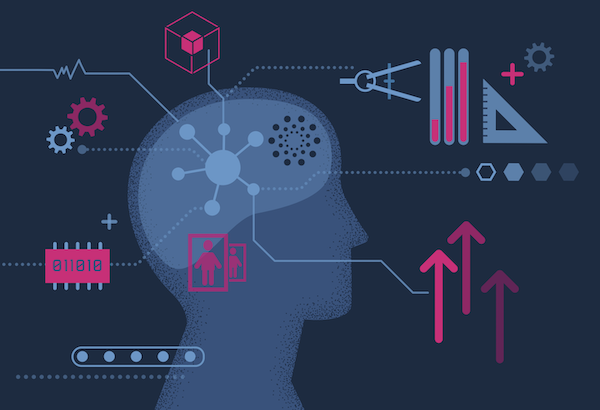
Tag: MIT
MIT Releases a Comprehensive Repository of AI Risks
The development and deployment of AI continue to evolve rapidly, and so do the risks associated with it. The nature of the risk varies greatly depending on the specific application, necessitating a tailored approach to r Read more…
MIT Researchers Leverage AI To Identify Antibiotic That Can Kill Drug-Resistant Bacteria
As bacteria continue to evolve to withstand the effects of antibiotics, it has rendered bacterial infections more challenging to treat. The issue of “antibiotic resistance” has already become a critical health issue. Read more…
Proactive CIOs Embrace Generative AI Despite Risks: MIT and Databricks Report
A new report from MIT Technology Review Insights and Databricks found the most proactive CIOs are decisively embracing generative AI as part of an enterprise-wide strategy, despite its risks. “The Great Acceleration Read more…
MIT Researchers Use Machine Learning to Speed Up Data Retrieval Hashing
A multi-institutional team of researchers led by MIT has found a new way to speed up data retrieval in large databases using machine learning. The researchers used machine learning to build better hash functions. Hash Read more…
AWS Report Explores the Priorities of Today’s CDO
AWS has released a collaborative research report on the role of the contemporary Chief Data Officer that reflects on how the position and its priorities have evolved. “CDO Agenda 2023: Prioritizing Business Value Creat Read more…
MIT and Databricks Report Finds Data Management Key to Scaling AI
A new report from MIT Technology Review, in association with Databricks, found that 72% of C-level respondents believe data mismanagement will jeopardize future AI success. The report, “CIO vision 2025: Bridging the Read more…
MIT Advances Unsupervised Computer Vision with ‘STEGO’
Training machine learning models often means working with labeled data. For computer vision tasks, this might look, for instance, like an hour of camera footage from a car, meticulously sectioned by humans to designate r Read more…
New Machine Learning Tool Flags Risky Remedies
Sometimes, treatments can make things worse – but it can be hard to know when that is (or isn’t) the case. Such is the case with sepsis, which kills nearly 270,000 annually in the United States – and which can, sad Read more…
MIT Researchers Develop AI That Better Understands Object Relationships
Increasingly, AI is competent when it comes to identifying objects in a scene: built-in AI for an app like Google Photos, for instance, might recognize a bench, or a bird, or a tree. But that same AI might be left cluele Read more…
MIT Researchers Leverage Machine Learning for Better Lidar
Lidar (short for light detection and ranging) is an increasingly common technology – it’s embedded in iPhones and Teslas – that uses lasers to measure distances, allowing accurate remote mapping of small and large Read more…
ML Scaling Requires Upgraded Data Management Plan
Successful data strategies are built on a foundation of meticulous data management, creating enterprise architectures that “democratize” data access and usage, yielding measurable results from machine learning platfo Read more…
Facts Can Change, and AI Can Help
As understanding of an issue evolves, the best set of available facts often changes: for instance, mask-wearing wasn’t recommended early in the COVID-19 pandemic, but now, it’s common knowledge that mask-wearing is h Read more…
MIT Analytics Reveal How Anti-Maskers Leverage Data Visualization
You’ve probably seen them: the Facebook posts from a relative or a friend of a friend claiming that if you look at the numbers, the pandemic isn’t a big deal, masks don’t work – that kind of thing. Usually, there Read more…
MIT’s New ‘SpAtten’ Tool is Paying Attention to Your Sentences
In an episode of The Office, the character Kevin Malone famously opined: “Why waste time say lot word when few word do trick?” Indeed, language can be inefficient, leading to bloated and less-accurate natural languag Read more…
Using Genetic Grammar, MIT NLP Model Examines How Viruses Escape
As the COVID-19 pandemic crosses the one-year mark, its various mutations are increasingly dominating headlines. Part of this is due to some variants’ increased infectiousness, but much of it also stems from an underly Read more…
MIT Machine Learning Reveals COVID-19 Vaccines May Be Less Effective for Racial Minorities
The last month has been filled with incredible news on COVID-19 vaccines following an astonishing, year-long global effort that has shattered records for vaccine development. Three companies – Pfizer, Moderna, and Astr Read more…
AI Model Detects Asymptomatic COVID-19 from a Cough 100% of the Time
As early as December 2019, AI systems were warning policy-makers about the coronavirus. As the pandemic gained a foothold and began to spread across the world, AI found a number of other applications in the fight against Read more…
MIT Is Developing a Tool for Machine Learning-Powered Data Retrieval
With the global deluge of data, the opportunities are endless – but so are the challenges. Within five years, the world’s data is estimated to reach 175 zettabytes: enough to fill over 23,000 one-terabyte hard drives Read more…
COVID-19 Roundup: Apple, Palantir, Rolls-Royce & More
As the COVID-19 pandemic sweeps the globe, big data and AI have emerged as crucial tools for everything from diagnosis and epidemiology to therapeutic and vaccine development. Here, we collect the latest news in how big Read more…
MIT Aims to Ease AI Programming
A new AI programming language seeks to ease the process of writing inference algorithms and other predictive models without the hassle of grinding out complicated equations and code. Among the goals of the probabilist Read more…














































